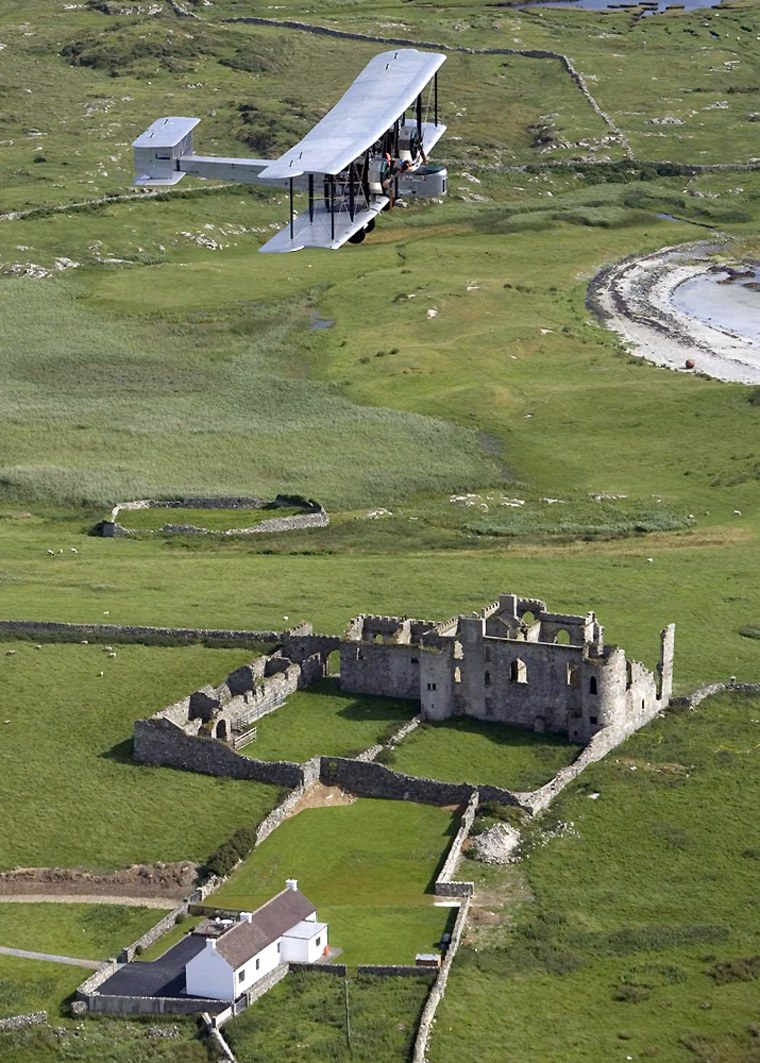Commemorating a record-setting flight 86 years ago, adventurer Steve Fossett and his copilot successfully flew a biplane across the Atlantic and landed Sunday on an Irish golf course to the cheers of 2,000 onlookers.
Fossett and antique airplane enthusiast Mark Rebholz, who jointly operated a custom-built replica Vickers Vimy, wanted to honor and emulate the June 1919 achievement of British pilots John Alcock and Arthur Whitten-Brown.
Both air crews flew from Newfoundland to Clifden in western Ireland using compasses and sextants for navigation. While Alcock and Whitten-Brown managed the feat in 16 hours, 20 minutes, Fossett and Rebholz took about about 45 minutes longer. And while the British pioneers crash-landed in a bog, their American successors landed smoothly on a local golf course.
The British duo was the first to fly nonstop across the Atlantic, completing the milestone eight years before Charles Lindbergh made his more famous solo crossing.
Fossett, 60, who already holds world records in five pursuits — in balloons, sailboats, gliders, airships and powered aircraft — said the challenge this time was to operate an aircraft that had no modern power steering.
“This was an endurance test,” Fossett said. “This airplane is very primitive. You have to keep your hands on the controls at all times. If you let go, the plane will go out of control.”
Rebholz, 52, said they had “intentionally minimized the instrumentation on the plane” to try to replicate some of the challenges that faced Alcock and Whitten-Brown — but conceded that use of a modern radio must have made them feel a lot more at ease.
“On the way over we were in contact with all the commercial airlines flying overhead,” Rebholz said. “That is a comforting feeling, talking to other people while you’re flying.”
